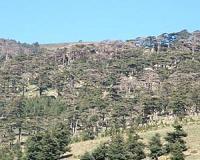| . |  |
. |
Montevideo, Uruguay (UPI) Apr 29, 2011 Uruguay's plans to establish a second pulp mill on the Rio de la Plata waterway it shares with Argentina received a boost with a Chilean pledge of investment and Finland's technical support. An existing eucalyptus pulp mill at Fray Bentos on the river triggered a prolonged diplomatic row that Buenos Aires took to the International Court of Justice and the United Nations, only to have its complaint thrown out. The World Court rejected Argentine claims the pulp mill polluted the river but pro-Argentina protesters still blocked for months a bridge linking the countries, causing millions of dollars of losses in tourism and trade. Despite those setbacks, controversy raged through 2010 until Uruguay's new President Jose Mujica struck a conciliation accord with Argentine President Cristina Fernandez de Kirchner. A joint commission is keeping a close watch on the river because of persistent Argentine claims the $1.2 billion pulp mill is harmful to the local environment. There was no immediate Argentine reaction to news of the second pulp mill, which will give Uruguay more clout because of involvement of Chilean and Finnish investors. Chilean fuel and forestry conglomerate Empresas Copec S.A. said it will invest $1.2 billion in the project in Conchillas on the river in a joint venture with interests in Uruguay and Finland, which will supply the pulping plant, expertise and training. Initial construction on the pulp plant has already started and the plant is expected to begin production in 2013. Copec's Celulosa Arauco y Constitucion S.A. forestry and pulp subsidiary is one of the world's leading pulp producers. To supplement production and export potential of the new pulp mill, the company will invest $110 million in a new medium-density particleboard plant and $105 million in a plywood plant, both in Chile. Analysts said a repeat of the dispute over the Fray Bentos pulp mill, in operation since 2006, was unlikely. In April last year, the International Court of Justice at The Hague, Netherlands, found that Argentina had presented insufficient proof of contamination caused by the pulp-making process. Although the court ruled unanimously that Uruguay had violated a joint agreement on the administration of the river by building the pulp mill without consulting Argentina, it ruled the plant couldn't cease production. After the World Court ruling Argentina's government had to take the protesters to court to force them to end their protests that blocked the bridge over the river. Uruguay said the blockade caused huge losses to its trade and tourism.
Share This Article With Planet Earth
Related Links Forestry News - Global and Local News, Science and Application
 'Cedar mafia' threatens Morocco's cherished wood
'Cedar mafia' threatens Morocco's cherished woodAjdir , Morocco (AFP) April 29, 2011 Revered as the "king of the forest" in Morocco, the native cedar tree is under increasing threat from illegal logging - a crime which also threatens the country's main water reserve. In the Ajdir forest, in the heart of the Middle Atlas mountain range, these imposing trees once covered every slope. Now their numbers are in rapid decline, to the bitter dismay of the local Berber-speaking po ... read more |
|
| The content herein, unless otherwise known to be public domain, are Copyright 1995-2010 - SpaceDaily. AFP and UPI Wire Stories are copyright Agence France-Presse and United Press International. ESA Portal Reports are copyright European Space Agency. All NASA sourced material is public domain. Additional copyrights may apply in whole or part to other bona fide parties. Advertising does not imply endorsement,agreement or approval of any opinions, statements or information provided by SpaceDaily on any Web page published or hosted by SpaceDaily. Privacy Statement |